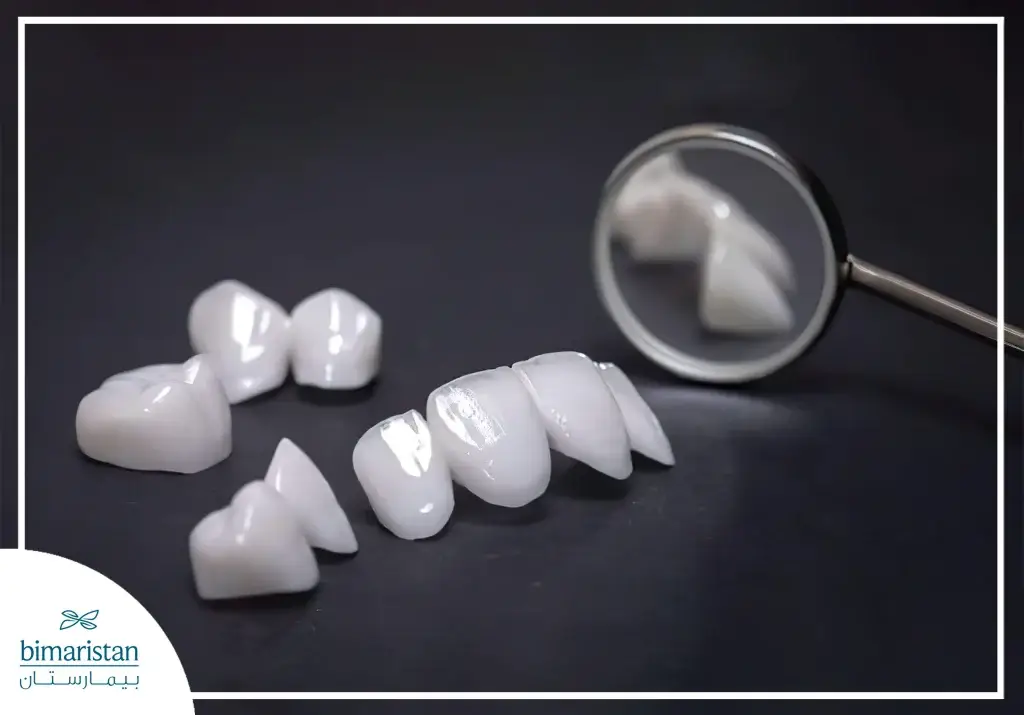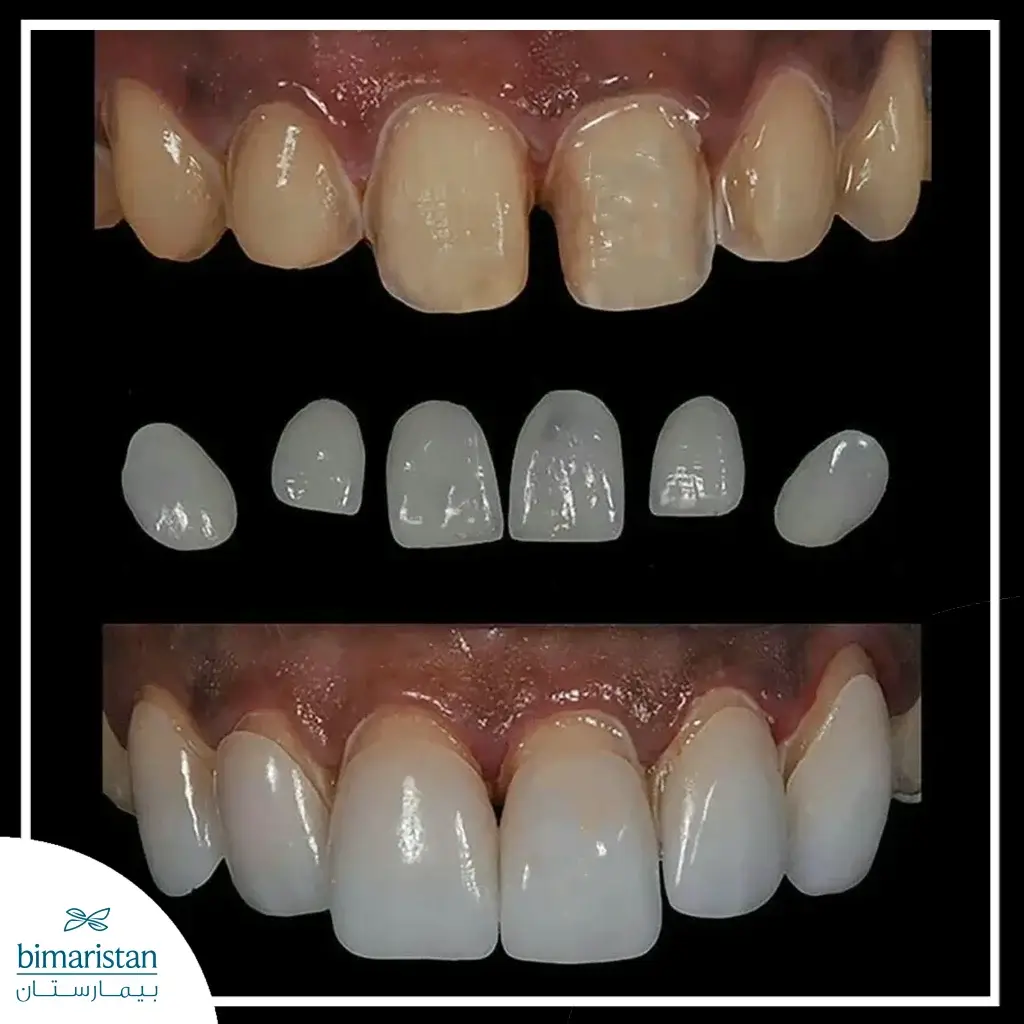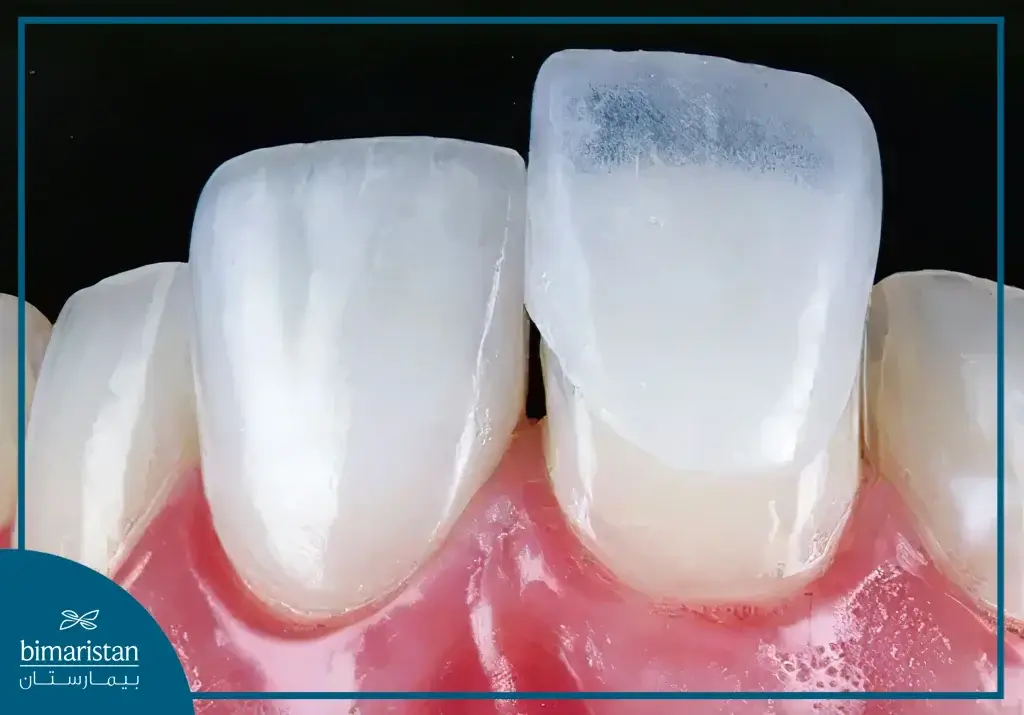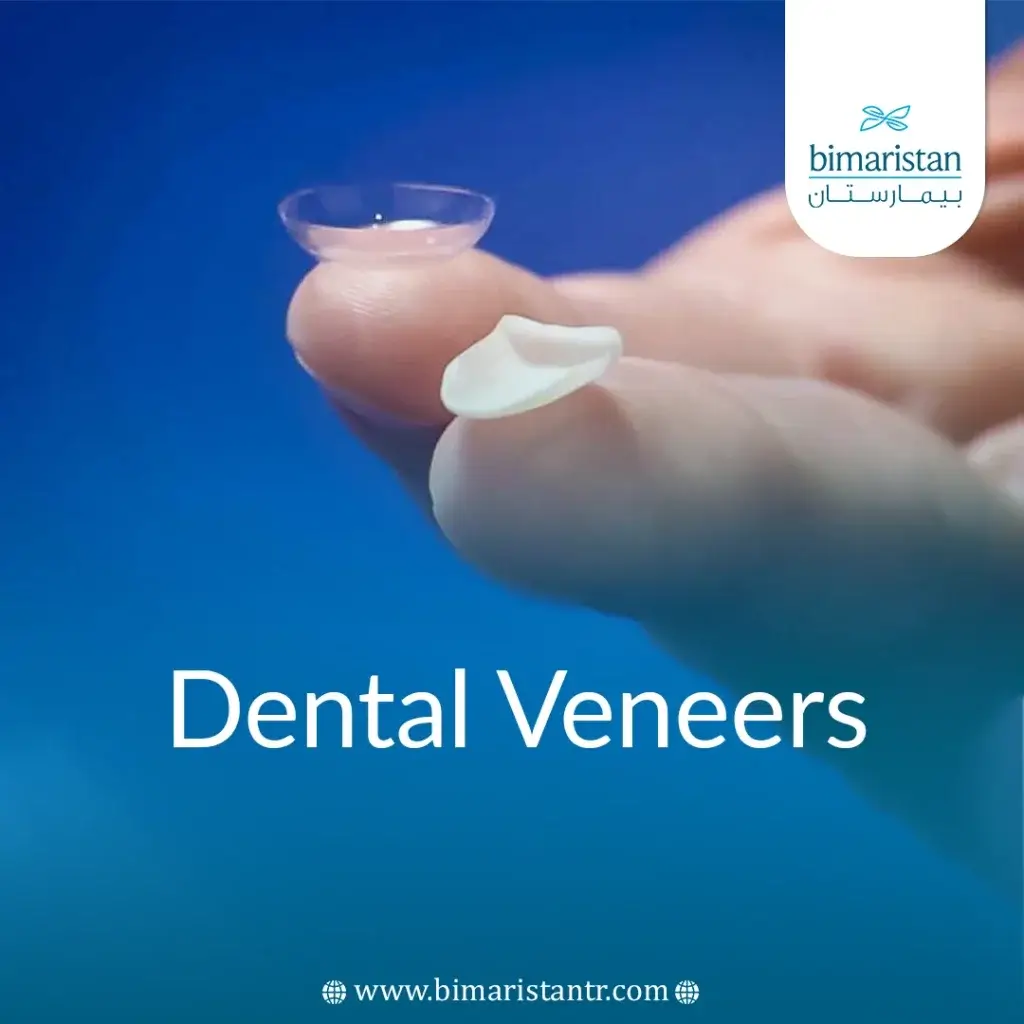Dental veneers are custom-made thin shells installed on the front surface of teeth in Turkey to enhance their appearance and create a beautiful smile.
Veneers can change the color, shape, size, and length of teeth and hide dental problems such as discoloration, cracking, and misalignment. For some people, damage or discoloration of the front teeth can affect their self-confidence or self-esteem. These lenses are the ideal solution to improve their appearance and thus their self-confidence by getting a sparkling smile.
A cosmetic veneer can be applied to one tooth or several teeth at the same time. It usually requires three visits to the dentist: one for consultation and two to make and apply the veneer.

What are veneers and lumineers?
Dental veneers and lumineers are tooth-colored dental enhancements designed to conceal or correct various dental issues, including:
- Teeth that have discolored due to:
- Root canal treatment
- Stains from tetracycline or other medications
- Fluorescence staining
- Large discolored composite fillings
- Other causes
- Worn teeth
- Broken or cracked teeth
- Misaligned, uneven, or anatomically irregular teeth (with pits or bulges)
- Teeth that have spaces between them (to fill the gap between these teeth)
Dental veneers help improve the appearance of a person’s teeth and are useful for people who want a long-term solution to cosmetic problems and dental imperfections, especially those who do not respond to other treatments such as teeth whitening or orthodontics.
During the preparation process, the dentist usually removes a small amount of enamel (the protective outer covering of the tooth) for this reason, once the dentist has bonded the veneer to the tooth surface when it is placed, the person cannot remove it and choose to stop using it.

Types of veneers in Turkey
There are two types: veneers made of porcelain materials and made of resin/composite.
Porcelain veneers
The most famous type of composite veneers, called porcelain or zirconium veneers, are a durable and thin cover made of ceramic that the dentist can place on the top and edges of the teeth.
The dentist removes a little of the enamel surface of the teeth so that the veneers can be fixed and glued in place. Porcelain veneers have the same color as natural teeth, and they can be made whiter to beautify and brighten the smile. They may last for 20 years.
Resin veneers
They are cosmetic veneers made of resin, similar to porcelain veneers, but are characterized by being cheaper and requiring less enamel removal. Sometimes, the dentist may not have to remove any enamel before installing them. They last for an average of 5 years.
Resin veneers are usually easier to replace than porcelain veneers if they break or get damaged, but their disadvantage is that they can become discolored over time, unlike ceramic veneers, which have greater color stability and durability, according to the American Health Organization, in addition to providing a slightly more natural appearance similar to teeth.
The type of veneer a person chooses depends on their budget, needs, and preferences. The dentist can help determine the type of veneer that suits them best.
For information and appointments, you can contact us; Bimaristan Medical Center is your family in Turkey.
What is the difference between veneers, crowns, and implants?
Crowns, veneers, and dental implants can improve the cosmetic appearance of teeth, with some differences between them:
One difference between veneers, crowns, and implants is the area of the tooth that each option covers.
Dental veneers primarily cover the front of the tooth, while crowns cover the entire tooth, including the front, back, and all sides. Crowns also help strengthen the teeth they cover. As a result, doctors use dental crowns to repair broken teeth and teeth with little remaining structure.
While implants are screw-like structures that attach to the jawbone to replace missing teeth, they are used when a tooth is untreatable and needs to be extracted.
Dentists use dental veneers to enhance the appearance of healthy teeth, while crowns are used to rebuild severely damaged teeth, and implants replace missing teeth.
How are dental veneers made in Turkey?
According to the American Dental Association, the method of performing dental veneers depends on the type of face a person chooses.
Porcelain veneers
To create dental veneers, the dentist first removes some enamel and takes an impression of the teeth to make a mold. This mold is then sent to a specialized laboratory to produce the appropriate porcelain veneer lenses. The dentist may place temporary lenses on the teeth while the patient waits for the permanent ones.
At the next appointment, the dentist will assess whether the veneer is suitable or not and its color is good. Any adjustments are made as needed and then the veneer is attached to the teeth.
Resin Veneers
To create dental veneers, the dentist begins by cleaning, preparing, and reshaping the gums and teeth. After preparation, they bond and sculpt resin material, adjusting the color to ensure the veneer lens looks natural in the patient’s mouth.
Then the dentist will use a light to align the resin material. Once the veneer hardens, the dentist will smooth and polish it so that it looks like natural teeth.
The difference between Lumineers and Veneers in terms of thickness
The main difference between Lumineers and Veneers is in the thickness, as the thickness of dental veneers ranges between 0.5 and 2 mm, while the thickness of Lumineers lenses can be less than 0.5 mm.
Removable Veneers
This is a removable veneer that covers your natural teeth and can be removed at any time.
This type can beautify your smile, but it may make eating difficult or make speaking uncomfortable.
Advantages of dental veneers
Veneers offer many benefits:
- Helps you achieve a natural and attractive smile
- Studies have shown that the gums accept the porcelain material that makes up the veneer
- Porcelain veneers remain white and do not change color over time
- Does not require as much preparation as crowns do
- The ability to choose a color that makes dark teeth appear dazzling white

Risks and harms of fixed dental veneers
The harms of dental veneers are as follows:
- The procedure cannot be reversed.
- More expensive than cosmetic composite fillings.
- The veneer usually cannot be repaired if it is damaged.
- It may cause tooth sensitivity to hot and cold foods and drinks due to the removal of a layer of the enamel surface.
- It may not match the color of your other teeth exactly and the color of the veneer cannot be changed once it is in place, if you are planning to whiten your teeth you need to do this before getting veneers.
- Veneers can break off and fall off, to reduce the chance of this happening do not bite your nails or chew on pencils, ice or other hard objects and do not put too much pressure on your teeth.
- When teeth with veneers are exposed to decay, you may need to cover the entire tooth with a crown.
- It is not a good option for people with unhealthy teeth (decayed or with active gum disease) or weak teeth (due to decay, fracture, or large dental fillings) and is not used for those who do not have enough enamel covering the teeth.
- People who grind and grind their teeth are poor candidates for veneers because this can cause the veneer to break or crack easily.
Aftercare after dental veneers
After placing dental veneers, the dentist may schedule periodic follow-ups to ensure the lenses remain secure and comfortable for the wearer.
If using resin veneers, the person should avoid coffee, tea, and red wine in addition to other things that can cause yellowing of the teeth to make the veneer last longer.
The dentist in Turkey may advise you to:
- Avoid biting hard objects
- Avoid biting your nails
- Use a mouthguard
- Avoid grinding your teeth
- Chew very hard foods
- Open things with your teeth
When dental veneers are placed, a person may initially feel roughness, which should fade over time. If it persists, the dentist can smooth it out, as rough spots often occur from excess bonding material left on the veneer.
Maintaining good oral hygiene is crucial for individuals with dental veneers to prevent cavities, which includes brushing twice daily and flossing once a day.
With proper care, dental veneers can last between 7 to 15 years. Their longevity depends on the materials used by the dentist and the individual’s maintenance efforts.
Sources:
